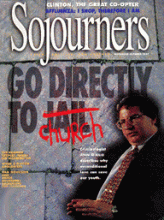To read Fighting the Lambs War is to hear the Phil Berrigan whom we know in real life: introspective, judging himself by the standards he sets for everyone. Yet examples of his learning to temper with tolerance his expectations of stumbling human beings are also evident.
In this book, I hear Phils voice in the straightforward simplicity of style, almost poetic in his homily on his mother: Her gentleness is an inheritance her son must painfully acquire as he grows from the patriotic "highly skilled young killer" to uncompromising warrior for peace, only gradually learning the way of the Lamb who forgives as well as calls to self-sacrifice. Her peace-filled death reminds him of the risen Jesus: "Peace be to you! And when he had said this, he showed them his hands and his side." Berrigan explains, "I began to understand the old biblical axiom that there is no reconciliation without bloodshedno reconciliation without an offering for others."
The teacher speaks too, sharing the in-depth research that always informed his choices and public witness. Because Berrigan could not talk simply about himself, he also analyzes, in running commentary and selections from his writings, the evils of imperialism, the idolatry of the bomb, the injustices against minorities, and the need for revolutionary and nonviolent resistance to them all. Judgment is unsparing but so is gratitude for any evidence of decency and integrity on the part of religious superiors, politicians, judges, or prison guards.
Read the Full Article
